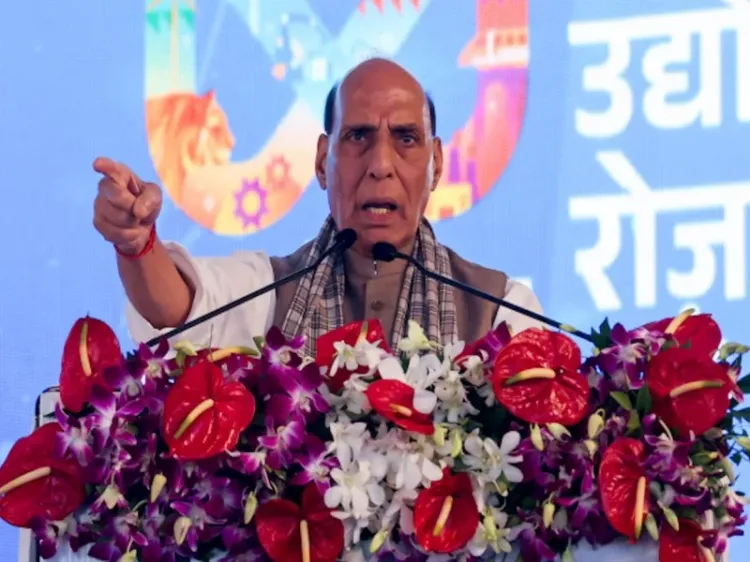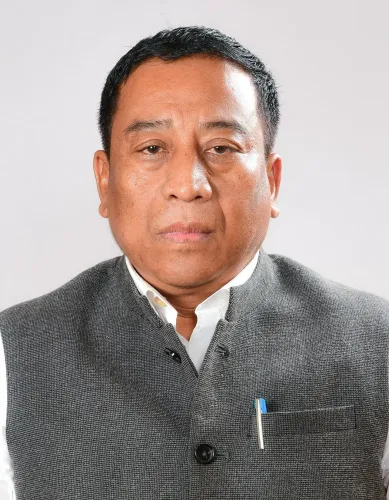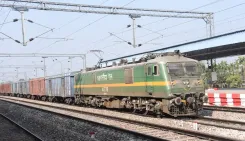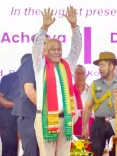Can India Become a Leading Power Despite Hostile Trade Tactics?

Synopsis
Key Takeaways
- India's economic rise is seen as a threat to some global powers.
- Hostile trade tactics are part of a calculated strategy against India.
- Defence sector growth is pivotal for India's national resurgence.
- India is becoming self-reliant in defense manufacturing.
- Local industries will benefit from defense industrialization.
New Delhi, Aug 10 (NationPress) In an intense condemnation of global trade animosity, Defence Minister Rajnath Singh subtly criticized US President Donald Trump and his tariff strategies, alleging these were part of “deliberate attempts” to obstruct India’s economic ascent by targeting products manufactured in India through “manipulative hostile trade practices”.
“Certain individuals feel threatened by India’s swift economic expansion,” Rajnath Singh stated.
“They perceive themselves as global overlords. Many are conspiring to confine India with hostile trade tactics -- plotting to inflate prices of Indian goods in international markets to deter buyers. These actions are not incidental; they are meticulously orchestrated. But let me assert this unequivocally,” Rajnath Singh declared, “no power can prevent India from progressing and establishing itself as one of the world’s foremost powers”.
The remarks made by Rajnath Singh, shared publicly and on his official social media account, mirror a rising confidence in India’s strategic and economic trajectory — especially in the Defence sector, which he cited as a fundamental pillar of national resurgence.
“Since our government took office in 2014 under Prime Minister Narendra Modi, India’s defence exports, once insignificant, have soared to ₹24,000 crore per year — a milestone that Rajnath Singh credits to visionary leadership and indigenous innovation.
“We committed to achieving self-reliance in Defence. Unlike in the past when we relied on imports for everything from weapons to fighter jets, we are now not only manufacturing what we once imported but are also exporting to other nations. This change signifies India’s expanding capability and confidence.”
He further emphasized the sector’s broader economic ramifications: “The Defence sector is crucial for India’s economic advancement. It bolsters our security while also fueling national growth.”
During the foundation stone-laying ceremony for a new BEML unit in Umaria village of Raisen district, Rajnath Singh highlighted the local advantages of Defence industrialization.
“This unit will generate new job opportunities and promote small and large industries associated with it. It will create employment for local residents and improve their technical skills and efficiency.”
Referring to Operation Sindoor, Singh conveyed a clear message to adversaries: “We do not instigate anyone. But if provoked, we do not hesitate to respond.” His speech was filled with assertiveness — Rajnath Singh made it clear that India is no longer a passive participant in global affairs. It is an emerging power, unwilling to be cornered by outdated hierarchies or hostile trade regimes.









